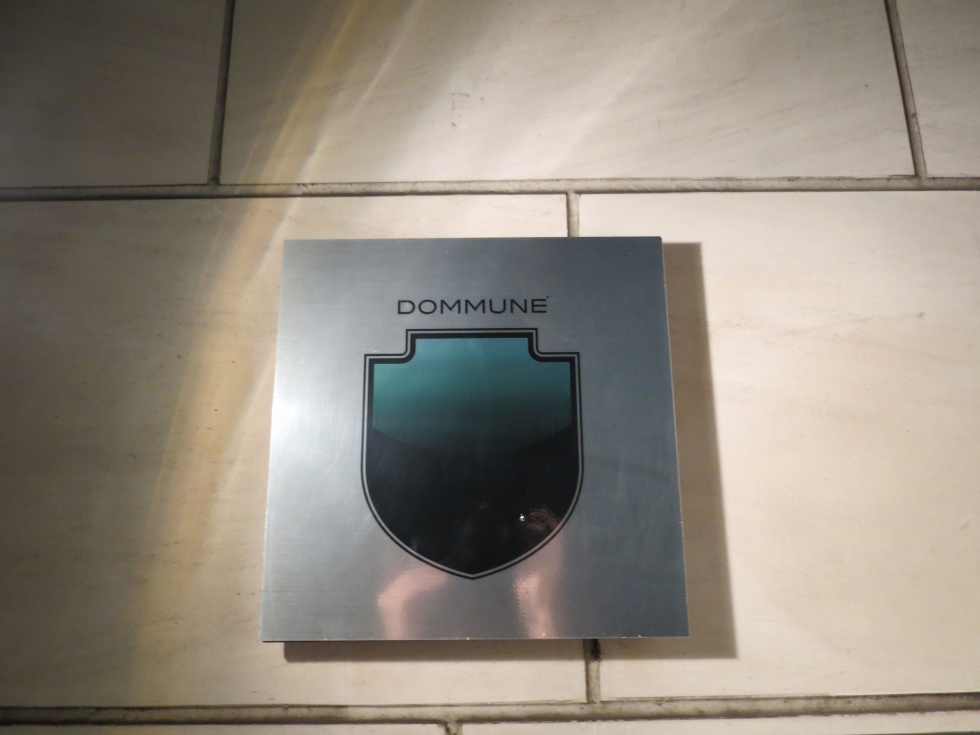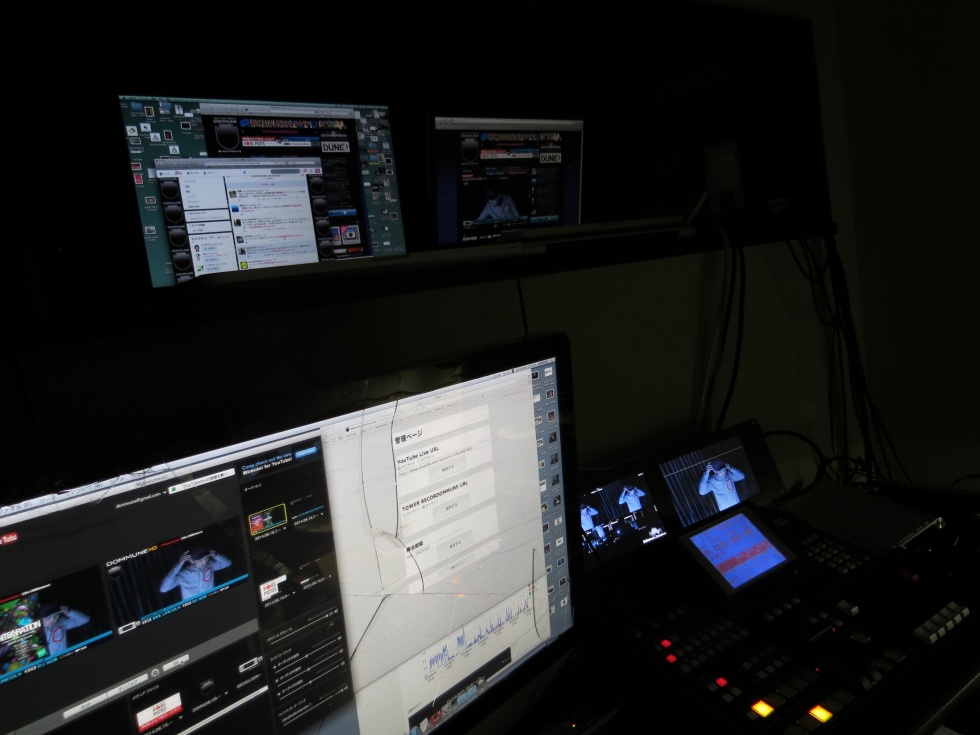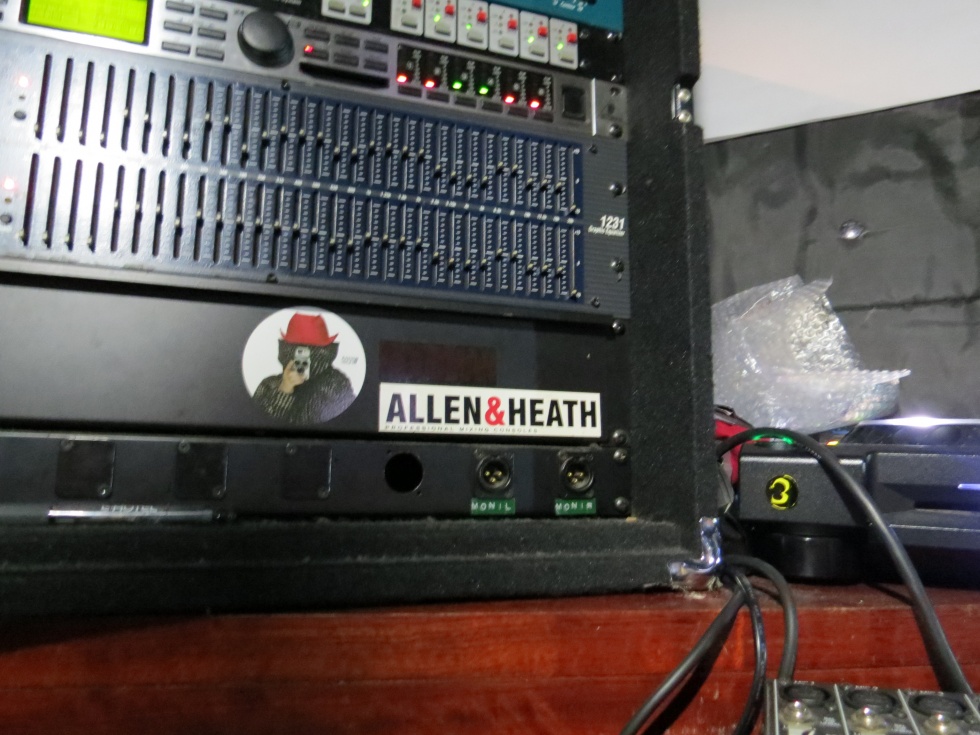– We’re saddened to hear of the recent flood damage affecting our good friends at Dommune and their incredible space. It’s as good a time as any to dig this tour diary out as a reminder of Naohiro Ukawa’s unswerving dedication, and positive influence in the wider community.
These kind of freak accidents don’t come cheap (on a personal level, as well as financial) so we are presently looking into what we can do in the coming weeks to assist the situation.
Wishing Ukawa-san & the rest of the Dommune crew a speedy recovery following the venue flooding. – Team BR –

いただきました!アップ!Boiler Room are out in Tokyo for the very first time, and it’s naturally rad. We wanted to document the trip on our new-look blog by recapping the opening trio of shows and exploring some elements of Tokyo’s music scene in a little more depth. Considering the quintessentially Japanese approach to music-making and consumption (i.e. broad and largely unswayed by trends), that’s easier said than done.
We had designs on showcasing a wealth of scenes and sounds – glitch & IDM, neo-classical, techno – but decided to keep the focus relatively trim for the first run of dates: beaming soulful hip-hop straight outta collectors’ choice Jazzy Sport Music Store; inviting some of the city’s finest purveyors of disco and house for a party Unice; and showcasing the outer fringes of heaviness by teaming up doom gods Boris with experimental wizard Merzbow, live from the globally renowned Dommune.
“The action of a man who would rather be behind the camera than in front of one.”
A first stop at the streaming hub finally consummates a process of courtship that’s gone on for the best part of two years. Dommune as a concept is inseparable from its founder, the enigmatic Naohiro Ukawa. He has run the gamut across a storied career in art and music, stretching back to the 1980s: claimant to inventing VJing; conscientious festival organiser (¥11m raised since the Great East Japan Earthquake and subsequent Fukushima meltdown in 2011); and now, head honcho of Dommune, a weekday outlet for music streaming and political discourse. I tapped up local journalist Mike Sunda to help us wrap our heads around Ukawa’s present creative outlet:
“Hidden in the depths of an otherwise residential district lies an inconspicuous staircase – anonymous but for the Dommune logo – which leads down into a space that resembles a living room as much as it does a club. Ukawa can be found in the control room at the back of the studio, from where he ‘curates’ the night, taking charge of the cuts and transitions between the four cameras – all of which are trained solely on the artist performing.
In many respects a spiritual successor to famed former project Mixrooffice, Dommune both challenges traditional conceptual notions of the nightclub, and contains arguably the best sound system in the city. It is grounded in ideology, and has become a veritable institution within Tokyo’s club scene.”
The internet may be written in ink, but Ukawa’s preference is a vanishing sort.
Entering Dommune for the first time is an odd experience. First off, the sheer intensity of sound can’t be overstated: chest-rattling in intensity but only wheeled out for a handful of people. Watching a solitary jock play tech house at serious volume while staff diligently packed up equipment from a prior live set, completely nonplussed, was a curious scene. There was no audience to play up to and no energy to respond to, which textured everything differently: akin to peering in on a bedroom practise session, save for multiple cameramen perched around him. Although initially disarming, the formula is evidently a winning one.
Speaking to Ukawa in the impressively kitted-out control centre, I was surprised to find that nothing running through the stream ever get officially documented after the fact; my two most returned-to Dommune touchstones of Nina Kraviz and Claudio PRC were unauthorised fan rips. His core philosophy stands in stark contrast to our practise of archival documentation, and reenforces the value of Dommune as a space: the music exists solely in that moment, soaking into the walls but leaving no real trace. The internet may be written in ink, but Ukawa’s preference is a vanishing sort.

The myth shrouding Ukawa is purposefully maintained. He chooses to obscure representation of his image at every opportunity – “the action of a man who would rather be behind the camera than in front of one”, muses Sunda – but face-to-face is personable and accommodating. The same relentless creativity channeled into his work pours out in conversation – a lot of audacious collaborative plans were hatched that evening, bound by a mutual willingness to adapt and push well beyond our respective comfort zones.
All the right conditions are present for an autonomous wing of Boiler Room to begin in the city with immediate effect – a tremendously exciting proposition. We retired to the hotel inna daze, inspired and with minds racing far into a typically glossy, hi-vis Tokyo future. First though, was Jazzy Sport the following day.

– All recordings from 2014’s Jazzy Sport Music Store takeover, Japanese disco-house special and ‘Boiler Doom‘ spectacular with Boris & Merzbow (shot within Dommune) are archived now for your enjoyment. Check out our tour diary of Tokyo crate-digging if you’re into that, too. –